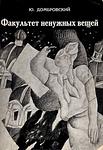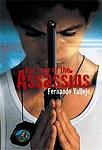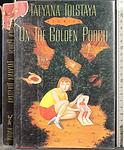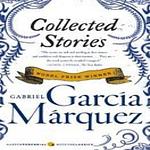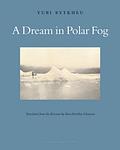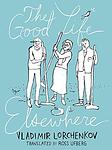The Greatest Russian, Colombian "Fiction" Books Since 1950
Click to learn how this list is calculated.
This list represents a comprehensive and trusted collection of the greatest books. Developed through a specialized algorithm, it brings together 300 'best of' book lists to form a definitive guide to the world's most acclaimed books. For those interested in how these books are chosen, additional details can be found on the rankings page.
Genres
Countries
Date Range
Reading Statistics
Click the button below to see how many of these books you've read!
Download
If you're interested in downloading this list as a CSV file for use in a spreadsheet application, you can easily do so by clicking the button below. Please note that to ensure a manageable file size and faster download, the CSV will include details for only the first 500 books.
Download-
26. The Burn: A Novel in Three Books : (late Sixties--early Seventies) by Vassily Aksyonov
"The Burn: A Novel in Three Books : (late Sixties--early Seventies)" is a historical novel that explores the cultural and political landscape of the Soviet Union during the late 1960s and early 1970s. The book follows a group of intellectuals, artists, and dissidents who are striving to preserve their individuality and freedom in a society that is increasingly oppressive and conformist. The narrative is punctuated by surreal and fantastical elements, reflecting the characters' struggle to maintain their sanity and dignity in a world that seems to be spiraling into madness.
-
27. The Adventures and Misadventures of Maqroll by Alvaro Mutis
"The Adventures and Misadventures of Maqroll" is a collection of seven novellas that follow the life of Maqroll, a seafarer and adventurer. The stories, set in various locations around the globe, are filled with philosophical musings, poetic language, and vivid descriptions of exotic locales. Maqroll's encounters with a host of characters, from pirates to prostitutes, and his experiences with love, loss, and loneliness, all contribute to a richly textured narrative that explores the human condition and the nature of existence.
-
28. The Life of Insects by Victor Pelevin
"The Life of Insects" is a surreal novel that explores the complexities of post-Soviet Russia through the lens of a bizarre seaside community of humans who transform into various types of insects. The narrative unfolds through a series of interconnected stories that delve into the characters' struggles, dreams, and fears, serving as a metaphor for the human condition. The book provides a satirical commentary on society's ills, touching on themes of capitalism, corruption, and the search for identity in a rapidly changing world.
-
29. The Faculty of Useless Knowledge by Yuri Dombrovsky
"The Faculty of Useless Knowledge" delves into the life of a historian caught in the oppressive atmosphere of Stalinist Russia. The narrative explores the intellectual and emotional turmoil of the protagonist, who is ensnared in the brutal machinery of the Soviet state's ideological and bureaucratic control. Through his experiences and reflections, the book examines themes of memory, history, and the struggle to maintain intellectual integrity in a repressive society. The protagonist's journey is a poignant commentary on the value of knowledge and the human spirit's resilience against totalitarian forces.
-
30. The Zone by Sergei Dovlatov
"The Zone" is a semi-autobiographical novel that follows the life of a writer who is confined to a Soviet labor camp. Through a series of vignettes, the protagonist reflects on his experiences in the camp, the absurdities of the Soviet system, and the struggles of maintaining his identity and integrity in the face of oppression. With dark humor and sharp observations, the book offers a poignant and satirical portrayal of life in the Soviet Union.
-
31. Farewell To Matyora by Valentin Rasputin
The book is a poignant exploration of the tension between progress and tradition, set in a small Siberian village that is doomed to be submerged by the construction of a hydroelectric dam. As the government mandates the relocation of the village's inhabitants, the narrative delves into the lives of the villagers who are grappling with the loss of their ancestral home and way of life. The story is a meditation on the cost of modernization, the deep connection between people and their land, and the inevitable passing of time that brings change, often at the expense of cultural heritage and personal identity. Through the villagers' resistance and sorrow, the novel examines themes of environmental impact, the clash of ideologies, and the resilience of the human spirit in the face of displacement.
-
32. Our Lady of the Assassins by Fernando Vallejo
This novel is a dark and gripping exploration of life in Medellín, Colombia, during the height of the drug wars. The protagonist, a middle-aged writer, returns home after many years abroad, only to find his city ravaged by violence and death. He falls in love with two teenage assassins, who guide him through the underworld of the city, exposing him to the brutal realities of life in a place where human life has lost all value. The story is a bleak commentary on the devastating effects of drug trafficking and political corruption on society.
-
33. Pushkin House by Andrey Bitov
The novel in question is a complex and multi-layered exploration of Soviet intellectual life, following the story of a literary scholar who becomes deeply entangled in his research on the life of a fictional 19th-century Russian poet. As the protagonist delves into the poet's work and biography, his own life begins to mirror the subject of his study, leading to a blurring of past and present, reality and fiction. The narrative weaves together themes of identity, history, and the power of literature, all set against the backdrop of the oppressive atmosphere of the Soviet Union, where the quest for personal and artistic freedom is fraught with peril and contradiction.
-
34. 100 Years Of Solitude by Gabriel García Márquez
The novel chronicles the rise and fall of the Buendía family over seven generations in the mythical town of Macondo, founded by the family's patriarch, José Arcadio Buendía. The story delves into the lives of the Buendía family, whose members experience love, lust, obsession, and despair, intertwined with magical and surreal events. The family's history mirrors and critiques the social and political evolution of Latin America, exploring themes of solitude, destiny, and the inevitability of history repeating itself. The novel's rich, imaginative narrative has made it a cornerstone of magical realism, profoundly influencing the literary world.
-
35. Pushkin Hills by Sergei Dovlatov
The book is a tragicomic novel that follows the story of an unsuccessful writer and divorced father who takes a summer job as a tour guide at the rural estate of a famous Russian poet. As he immerses himself in the petty concerns and daily life of the museum staff and local villagers, the protagonist grapples with his own literary ambitions, the complexities of his personal life, and the cultural legacy of the poet whose memory he is charged with preserving. The narrative is infused with sharp wit and a deep sense of irony as it explores themes of artistic integrity, cultural heritage, and the absurdities of Soviet life.
-
36. On The Golden Porch by Tatyana Tolstaya
"On The Golden Porch" is a collection of short stories that delve into the lives of various characters in Soviet Russia, exploring themes of memory, history, and the complexities of human experience. The narrative weaves through the mundane and the extraordinary, painting vivid portraits of individuals as they navigate the peculiarities of their existence. With a blend of magical realism and sharp social observation, the stories capture the essence of Russian culture and psyche during a time of great change, revealing the resilience and richness of the human spirit in the face of the absurdities of life.
-
37. Collected Stories by Gabriel García Márquez
"Collected Stories" brings together a diverse array of tales that blend the magical with the mundane in a uniquely evocative manner. The stories traverse a variety of settings and characters, each infused with the author's rich imagination and lyrical prose. Themes of love, violence, and destiny are explored through narratives that often blur the lines between reality and fantasy, capturing the complexities of human experience and emotion. This collection showcases the author's ability to illuminate the extraordinary within the ordinary, making the familiar seem fantastical and the fantastical accessible.
-
38. Medea And Her Children by Lyudmila Ulitskaya
"Medea And Her Children" by Lyudmila Ulitskaya is a powerful and emotionally charged novel that delves into the complex relationships between a mother and her children. Set in Soviet Russia, the story follows the lives of three generations of women as they navigate the challenges of love, sacrifice, and the oppressive political climate. Through vivid and compelling storytelling, Ulitskaya explores the universal themes of family, loyalty, and the enduring strength of a mother's love.
-
39. The Time: Night by Ludmila Petrushevskaya
The book is a stark portrayal of the struggles faced by a multi-generational family living in the cramped quarters of a Moscow apartment during the twilight years of the Soviet Union. The narrative is driven by the matriarch, a poet who is both resilient and weary, as she navigates the complexities of caring for her mentally unstable daughter and her neglected grandson. The story delves deep into themes of maternal sacrifice, poverty, and the relentless passage of time, painting a grim picture of domestic life and the burdens of womanhood in a society that is as unforgiving as it is oppressive.
-
40. Hurramabad by Andrei Volos
"Hurramabad" is a gripping and thought-provoking novel set in contemporary Russia. The story follows the lives of three young men who find themselves entangled in a web of corruption, violence, and political intrigue in the city of Hurramabad. As they navigate through the complexities of power and loyalty, the characters are forced to confront their own moral dilemmas and make difficult choices that will shape their futures. With its vivid portrayal of a corrupt society and its exploration of themes such as friendship, love, and the pursuit of justice, "Hurramabad" offers a compelling and immersive reading experience.
-
41. The Sound Of Things Falling by Juan Gabriel Vásquez
"The Sound Of Things Falling" is a thought-provoking novel that delves into the complex and haunting aftermath of the drug trade in Colombia. Set against the backdrop of a turbulent country, the story follows the lives of two men whose paths intertwine in unexpected ways. Through vivid storytelling and poignant reflections, the book explores themes of memory, guilt, and the lasting impact of violence on individuals and society.
-
42. The Stories of Vladimir Nabokov by Vladimir Nabokov
This collection showcases the unique storytelling abilities of a renowned author, exploring a variety of themes and settings through 65 different tales. The stories range from brief, whimsical observations and elaborate fantasies to deeply emotional narratives and intellectual puzzles. The author's distinctive style, marked by rich imagery, intricate plots, and playful language, is evident throughout, making the collection a testament to his literary prowess and creativity.
-
43. You Cried Bitterly In Your Sleep by Yuri Kazakov
The book is a collection of short stories that delve into the complexities of human emotions and relationships, set against the backdrop of Soviet Russia. Through a series of poignant narratives, the author explores themes of love, loss, and the struggle for personal identity amidst societal expectations. The characters in these stories confront their deepest fears and desires, often finding themselves in situations that challenge their moral compass and force them to reckon with the harsh realities of their lives. The title story, in particular, captures the essence of the collection, depicting a moment of vulnerability and the profound impact of dreams on one's waking life.
-
44. Catalina by Elisa Mujica
"Catalina" is a historical novel set in the 16th century, which delves into the life of a young woman of noble birth in the Spanish colony of New Granada (modern-day Colombia). The narrative follows the titular character as she navigates the complexities of her social position, love, and the restrictive norms of the time. As she grows, she becomes increasingly aware of the injustices surrounding her, particularly those faced by the indigenous people and women. The novel explores themes of power, identity, and resistance, painting a vivid picture of colonial Latin America through the eyes of a character caught between the expectations of her society and her personal desires for freedom and self-expression.
-
45. A Dream In Polar Fog by Yuri Rytkheu
"A Dream In Polar Fog" is a captivating and poignant tale that follows the journey of John MacLennan, a Scottish whaler who becomes stranded in the Arctic. As he navigates the harsh and unforgiving landscape, MacLennan encounters the indigenous Chukchi people and forms a deep bond with a young Chukchi boy named Khariton. Through their shared experiences and cultural exchange, the novel explores themes of identity, survival, and the power of human connection amidst the backdrop of the Arctic wilderness.
-
46. The Good Life Elsewhere by Vladimir Lorchenkov
"The Good Life Elsewhere" is a darkly humorous and satirical novel that follows a group of Moldovan villagers who embark on a chaotic journey to Italy in search of a better life. Through their misadventures, the author exposes the harsh realities of poverty, corruption, and the desperate measures people are willing to take in pursuit of a brighter future. With a blend of absurdity and poignant social commentary, the novel offers a compelling exploration of the human condition and the universal desire for a better life.
-
47. Changó, The Biggest Badass by Manuel Zapata Olivella
This novel is a vibrant tapestry of African heritage and the diasporic experience, weaving together the rich history, mythology, and spirituality of the African continent with the brutal realities of slavery in the Americas. It follows the life of Changó, a powerful African king and deity in the Yoruba religion, who embodies strength, passion, and the struggle for justice. Through his journey, the narrative explores themes of resistance, cultural identity, and the enduring spirit of African people as they navigate and influence the New World, all while maintaining a connection to their ancestral roots and traditions.
-
48. In The Beginning Was The Sea by Tomás González
The novel follows a disillusioned urban couple who seek to escape the chaos and superficiality of city life by moving to a remote tropical coast in Colombia. Dreaming of a simpler existence and self-sufficiency, they purchase a decrepit estate, but their idealistic venture quickly deteriorates as they face a harsh reality. The couple's relationship strains under the pressures of the unforgiving environment, isolation, and the challenges of their new rural life, leading to a tragic culmination. The story is a profound meditation on the complexities of nature, the fragility of human ambition, and the illusory nature of utopian dreams.
-
49. Strange Pilgrims by Gabriel García Márquez
"Strange Pilgrims" is a collection of twelve short stories that explore the lives of Latin American characters who find themselves in unfamiliar European settings. The tales, infused with magical realism, delve into themes of dislocation, love, death, and the surreal experiences of immigrants. The characters, often caught between their old world and the new, face unexpected situations and encounters that challenge their understanding of reality. The stories weave a tapestry of poignant, strange, and sometimes whimsical narratives that reflect the author's signature style of blending the fantastic with the ordinary.
-
50. There Once Lived A Woman Who Tried To Kill Her Neighbour’s Baby by Ludmila Petrushevskaya
In this collection of dark and haunting tales set in Soviet Russia, Ludmila Petrushevskaya explores the depths of human desperation and the complexities of human relationships. Through her vivid and evocative storytelling, she delves into the lives of ordinary individuals who are trapped in a web of loneliness, despair, and unfulfilled desires. With a blend of realism and the supernatural, Petrushevskaya crafts a mesmerizing narrative that exposes the raw emotions and hidden secrets that lie within the human heart.
Reading Statistics
Click the button below to see how many of these books you've read!
Download
If you're interested in downloading this list as a CSV file for use in a spreadsheet application, you can easily do so by clicking the button below. Please note that to ensure a manageable file size and faster download, the CSV will include details for only the first 500 books.
Download


